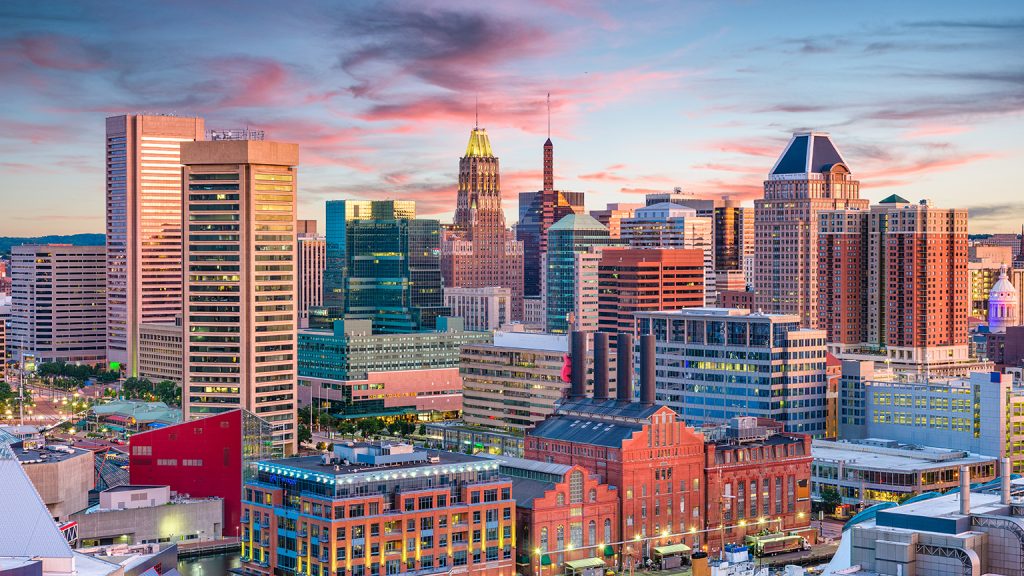In Maryland, access to free addiction resources is pivotal for residents to resist and recover from alcohol and drugs. The consistent increase in hospitalizations and deaths due to chemical dependencies has become a major concern among policymakers and the public.
Drug Statistics in Maryland
Addiction Nonprofits in Maryland
Maryland Coalition of Families
This organization provides assistance, education, resources, and support for families experiencing mental stress, alcohol and substance abuse, and gambling issues. The center offers no cost interventions, advocacy, and peer support programs.
Maryland 988
This hotline provides community resources, referrals, and support programs for clients impacted by substance use disorder. The hotline can provide assistance for co-occurring mental and behavioral health disorders, including gambling, as well as clients experiencing psychological and suicidal ideations.
Calvert Alliance Against Substance Abuse (CAASA)
This initiative, based in Calvert County, organizes volunteers at the community level to combat substance and alcohol abuse. The center provides educational workshops for schools, local businesses, and the public about strategies to build resilience and prevent relapse.
Garrett County Drug-Free Communities Coalition
This local volunteer group consists of parents, advocates, law enforcement, educators, and healthcare officials who meet monthly to design, implement, and evaluate outreach programs to build alcohol and substance resilience among youths.
Community Behavioral Association of Maryland
This network is made up of 87 local healthcare providers to coordinate and address mental and behavioral health disorders throughout the state, including substance abuse. The organization advocates for reforms in healthcare policy and removes barriers to care in underserved communities.
Harm Reduction Programs
Center for Harm Reduction
This government program provides drug test strips, naloxone, and syringe exchange services at no cost to clients ages 18 and older. The center also provides training and coaching to manage their naloxone intake.
Maryland Harm Reduction Institute
This center offers syringe exchange, education workshops, overdose prevention training, and community outreach programs. The center specializes in training mentors and coaches to mitigate substance use disorder.
Baltimore Harm Reduction Coalition
This network, centered around Baltimore, provides Narcan and syringe exchange programs through their in-person appointments or through the mail. Packages can include injection, inhalation, or smoking options. The coalition also advocates for stronger public health policies to reduce the stigmas of substance use in order to pass reforms.
Government Grants & Resources
Department of Veteran Affairs
Veterans can enroll in Maryland’s Commitment to VA program to access counseling for substance abuse, family resources, naloxone distribution, and assorted therapy programs. A hotline is provided to maintain confidentiality.
Sobriety Treatment and Recovery Teams (START)
This government agency coordinates care for young families, including newborns, that are impacted by parental substance abuse. The center provides drug screenings, community resources, and judicial interventions as needed.
Maryland Overdose Protection Team
This government program maintains county-level opioid overdose teams to provide assistance to clients who may need medical assistance due to substance abuse-related crises. These teams provide educational programs, share data with stakeholders, and collaborate with local communities to respond to reports of overdose.
College Addiction Resources
University of Maryland, Baltimore–Resources
The university offers campus, local, and national programs available for students impacted by substance use disorder. A screening program can assist students in assessing their chemical dependencies while under medical supervision.
Goucher College–Resources
The college provides campus, local, and state resources to address substance use disorder. Education and information links are available for selected chemical dependencies.
University of Maryland Health Center–Substance Use Intervention and Treatment (SUIT)
The university offers counseling by appointment, referrals for outside treatment, drug testing, and resources for students. Assessments and interventions are available for justice-involved students.
LGBTQ+ Resources
PFlag–Southern Maryland
This chapter of the PFlag network provides LGBTQ+ members in Southern Maryland with resources, support, advocacy, and public outreach programs.
Y2 Connect–LGBTQ+ resources
This directory offers contact information for recovery support for mental and behavioral health disorders that may impact the LGBTQ+ community.
Veterans Programs
VA Maryland Health Care System
The VA provides several hospitals in Maryland for veterans and their families. Clients can receive care for their mental and behavioral health disorders, referrals to specialists, and amenities, such as spiritual healing, patient advocates, and social services. Hours and services vary at each facility.
Charlotte Hall Veterans Home
This residential facility is a partnership between the state and Pruitt Health. The center offers 24/7 nursing care, rehabilitation, outdoors therapy, counseling, and faith-based healing. Amenities include a game room, barber shop, and events.
Maryland’s Commitment to Veterans
This state program provides behavioral health services to veterans and their families. The center includes peer support, referrals to outside treatment centers, employment and education resources, and crisis funding. The agency coordinates care with other state and private facilities.
Indigenous & Tribal Programs
Commission on Indian Affairs
This state agency oversees state resources directed toward American Indian groups. Services include mental and behavioral healthcare, maintenance of cultural and traditional practics, and social services.
Sweat Lodge
The Sweat Lodge is a traditional American Indian spiritual healing practice that allows clients to reconnect with nature and their families, and resolve internal conflict. Assorted sweat lodges are available throughout the state.
Drug Laws in Maryland
Naloxone Expansion Order
This standing order details the steps that licensed prescribers and pharmacists can take to distribute naloxone to any individual at risk from an opioid-related overdose.
Sober Living Certification Requirements
This bill provides guidelines and standards for the licensure and maintenance of sober living facilities. The law outlines the needed safeguards and treatment for the rehabilitation of facility residents.
Syringe Exchange Program
24.8.24-803 allows for the safe and lawful exchange of hypodermic needles and syringes at designated exchange sites. The law details requirements for the security and disposal of all needles.
Good Samaritan Law
The Good Samaritan Law offers exemption from liability for volunteers and first responders who, in good faith, offer aid to individuals experiencing an overdose from opioids. These individuals will generally not be persecuted for possession of drug paraphernalia or furnishing alcohol to minors.
